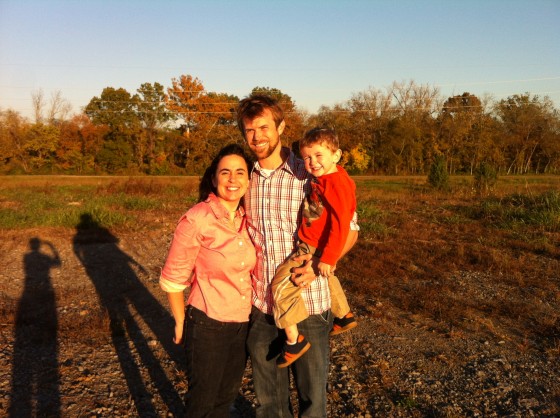This has been a tough year for us. Transitioning churches, cities, and completely overhauling our relationships has been a tough row to hoe. And we wouldn’t have made it but for the grace of God. We’ve found that God’s grace often comes packaged as friends. And occasionally coffee. 🙂
27 Things I’m Thankful for
1. God’s not done with me yet.
2. God’s grace is still for me, not just for everyone else.
3. My wife loves me, and still puts up with me. 🙂
4. My son’s an adventurer. I don’t have to teach him to live dangerously and take risks. I don’t have to push him be a boy. He does it naturally.
5. I’m in a healthy, growing, vibrant church that’s open to change.
6. My job is challenging. Nothing worse than being in a mundane job where you coast and aren’t needed.
7. Our house will be done soon. We’re living with my in-laws. It’s awesome, but I’m excited about our the project coming together. Here’s what we’ve got now:
8. My coffee station. It’s the little things, right?
9. That I don’t have to put up with cats. But you already knew that. Again, the little things. 🙂
10. To be in a job that I enjoy.
11. To serve on staff with a leader that I enjoy. Thanks Derek.
12. The burgeoning small groups team. We’re small, but scrappy. 🙂 thanks Micha!
13. The staff that has supported us in great ways. Especially Nick and Parker. And Calvin and Erica. Oh yeah, and Eric. Tony. Cyndi. Jason. Nate. Bill. The Dybas. Rog. Angie. Jeff. J Lo. Jeff. LT. Robyn. Lynne. Shannon. Brian. Shane. The Lamberths. Amanda. Todd. Henry. Julie. Andrew. Heck, you can see them all here.
14. The work I get to do with Steve Gladen and the Small Group Network. It’s awesome.
15. Being in a job where my gifts are maximized and my heart and mind are challenged. I know I kind of said that already, but I’m super thankful. So it bears repeating.
16. The countless small group leaders that have made it a point to encourage me in this transition.
17. Our family, that we’re living with. They’re so gracious.
18. My family, who has been so supportive of the craziness that has been our life over the past few months.
19. Grace, with whom we spent 5 amazing years.
20. Chad & the rest of the staff team at Grace, that were incredibly gracious and supportive of us as we made the hardest move of our lives.
2!. Good friends like David and Tony and the Anthonys and the Wolfes that have come to see us in Hendersonville.
22. Guys in my life that mentor me from far off. Thanks Ron.
23. My buddies that helped me move. Thanks John, Tony, Brad, Brandon, and Byron.
24. Friends that have still stayed in touch, even though I’ve moved. Thanks Jesse, Michael, and Peter.
25. Chocolate chip pecan pie. With a piping hot cup of good coffee.
26. Our Clarksville realtor, who helped us sell our house in 3 days. Thanks Jackie.
27. Our Hendersonville realtor, who showed us that it’s possible to be patient with a young couple as they look through 50+listings…only to end up buliding something new. Thanks Jeff.
What are you thankful for? Anybody you can thank, and tag here?















